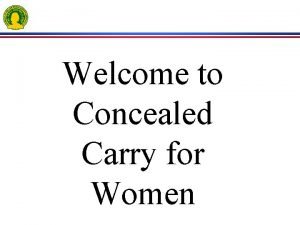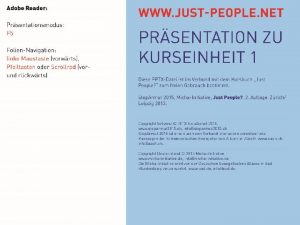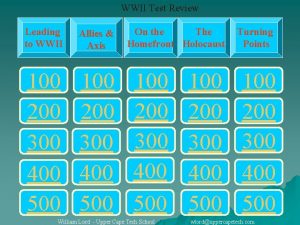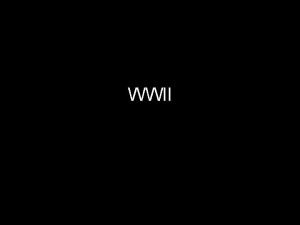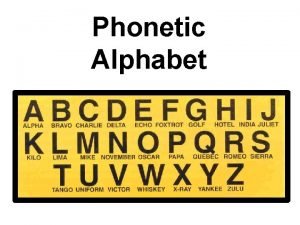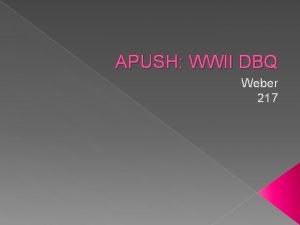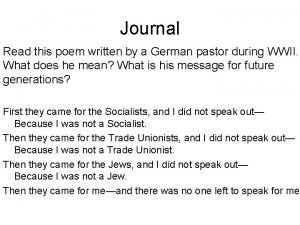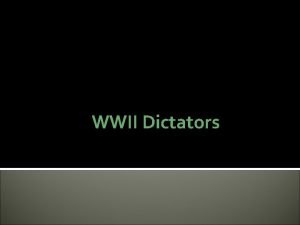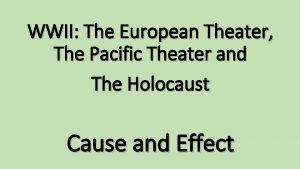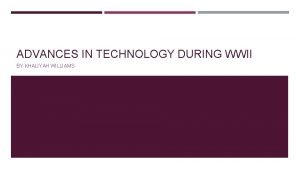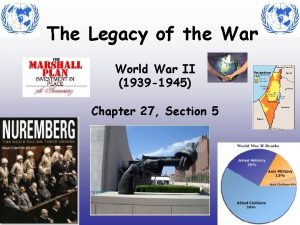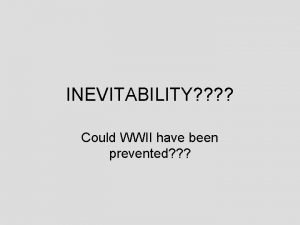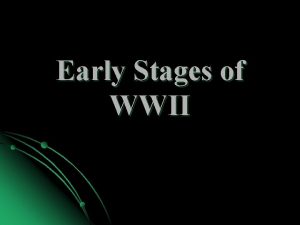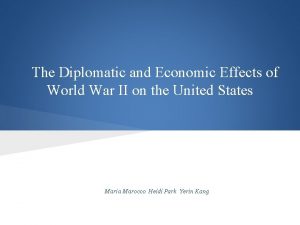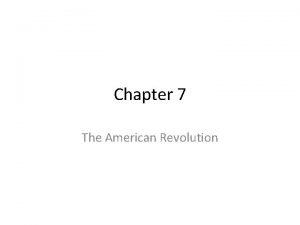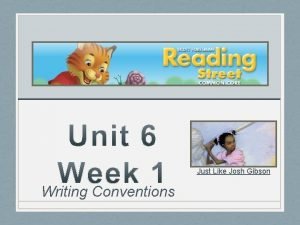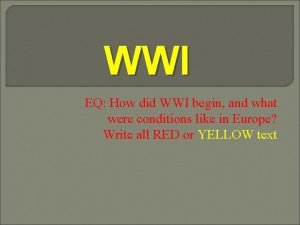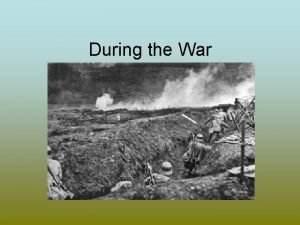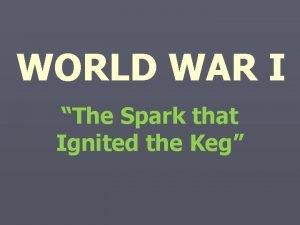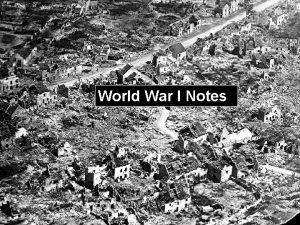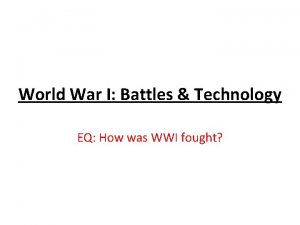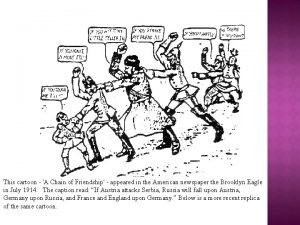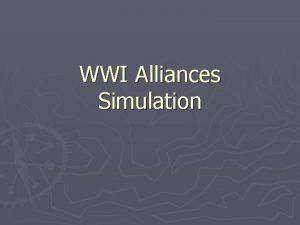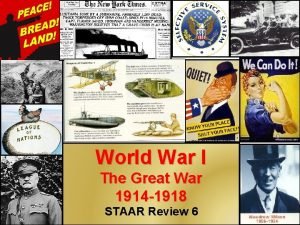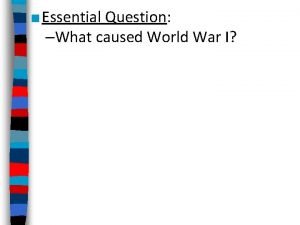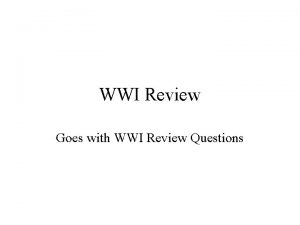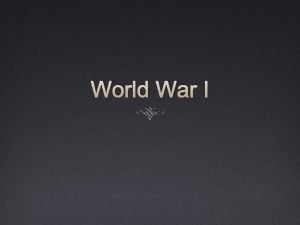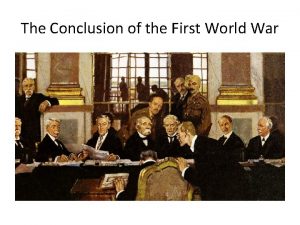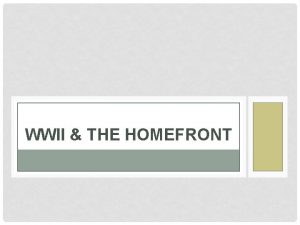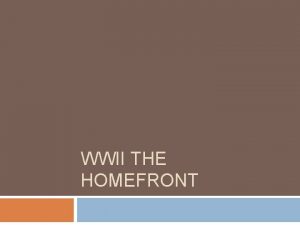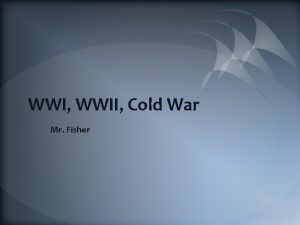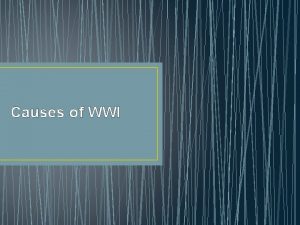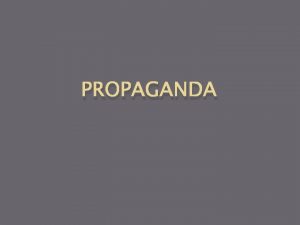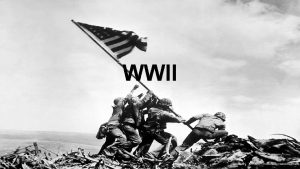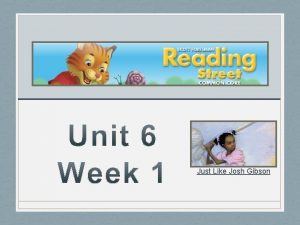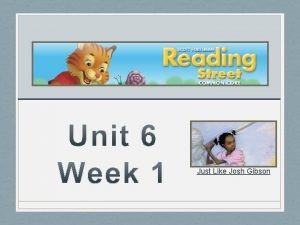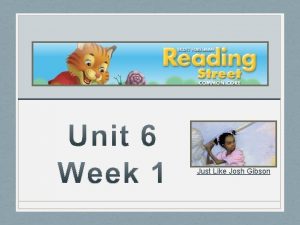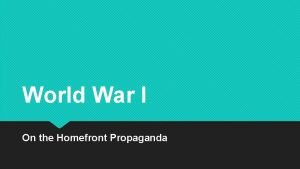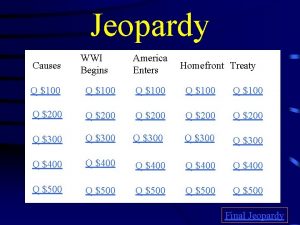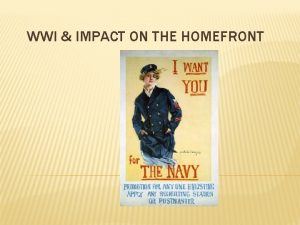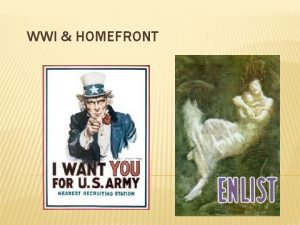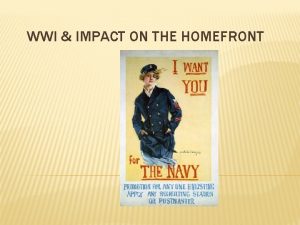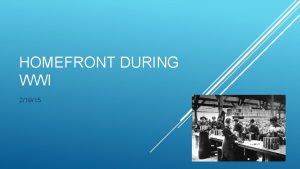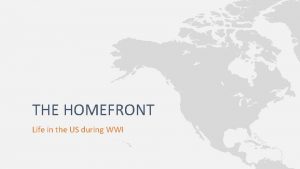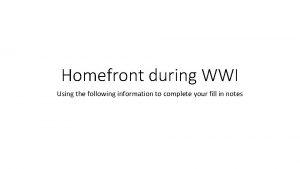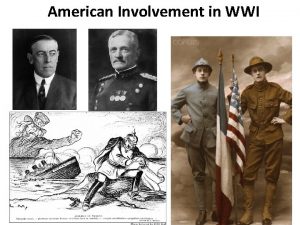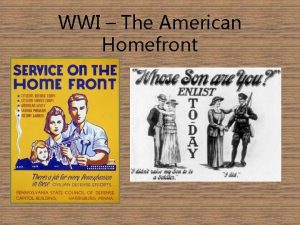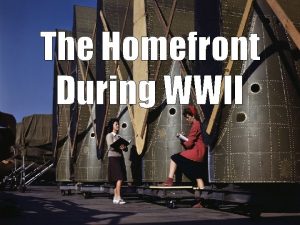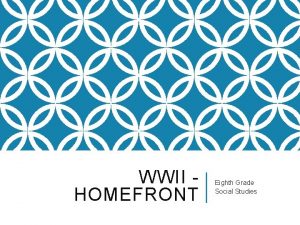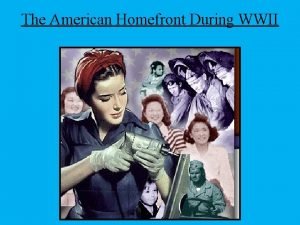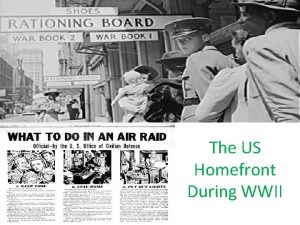WWII The Homefront Just like in WWI people





































- Slides: 37

WWII: The Home-front Just like in WWI, people at home were involved in the war effort. In WWII, however, the involvement and impact on their lives was even greater.

Rationing • Many items were rationed during WWII due to massive worldwide shortages • The priority was to make sure soldiers were well-stocked first • You couldn’t buy as much as you wanted of certain items • The government issued ration books and various stickers to regulate buying

Rationed Goods in the USA During the Second World War A wide variety of commodities were rationed during World War II in the United States. Rationing ended when supplies were sufficient to meet demand. • • • • Rationed Items Tires Cars Bicycles Gasoline Fuel Oil & Kerosene Solid Fuels Stoves Rubber Footwear Shoes Sugar Coffee Processed Foods Meats, canned fish Cheese, canned milk, fats Typewriters





• A = 4 gallons of fuel/week • B = 8 gallons/week (for driving essential to the war effort • T= unlimited fuel for truckers carrying supplies • X= Congressmen and other VIPs

Victory Gardens • People were encouraged to grow their own food • They wouldn’t have to buy this product at the store, which helped conserve supplies • They also felt like they were contributing to the war effort




War bonds • Just like the Liberty Bonds from WWI, people were encouraged to buy war bonds in WWII to help fund the war effort • This was the way to “do your part” without actually fighting overseas • It’s basically loaning the US government money, which could be done in small or large amounts





The Workforce • Many men went off to war, leaving jobs behind • More and more jobs were created because of greatly increased war production • Women stepped in to fill in where needed, often taking jobs in factories that were creating ships, planes, and weapons • Unlike after WWI, after WWII ended, more women either stayed in the workforce or their daughters returned to the workforce, carrying on their mothers’ legacies • Often, women saved the money they earned during the war and this money helped with the post-war boom after the men returned from the war






Propaganda • US Propaganda was mostly likely to be anti. Japanese (and very racist in it portrayal of Japanese people) but was also anti-Nazi • Used to remind people to be careful about what they said, especially in letters to their soldiers… loose lips sink ships! • Used to encourage home-front efforts like buying war bonds













 Homefront revolution holster weapon
Homefront revolution holster weapon Homefront wsgc
Homefront wsgc People just people
People just people German aggression map
German aggression map Wwii test review
Wwii test review Wwii picture
Wwii picture 1950s television history
1950s television history Phonetic alphabet wwii
Phonetic alphabet wwii Zoot suit riots apush
Zoot suit riots apush Wwii
Wwii Wwii picture
Wwii picture Wwii
Wwii Advances in technology during wwii
Advances in technology during wwii Wwii study guide
Wwii study guide What caused ww2
What caused ww2 Could wwii have been prevented
Could wwii have been prevented What is nye committee
What is nye committee Effects of wwii
Effects of wwii Does juliet wake up just before romeo dies or just after?
Does juliet wake up just before romeo dies or just after? The white team cheers for the blue team, just like
The white team cheers for the blue team, just like Ice floats on water just like wood floats on
Ice floats on water just like wood floats on Josh gibson movie
Josh gibson movie Neutral countries in ww1
Neutral countries in ww1 Wwi alliances cartoon
Wwi alliances cartoon What was the spark that ignited world war 1
What was the spark that ignited world war 1 What countries were involved in wwi
What countries were involved in wwi Mania world war i
Mania world war i New technology in wwi
New technology in wwi The chain of friendship cartoon meaning
The chain of friendship cartoon meaning Were critics of wwi anti-american
Were critics of wwi anti-american Ww1 alliance simulation game
Ww1 alliance simulation game 4 causes for ww1
4 causes for ww1 Nationalism wwi
Nationalism wwi Nationalism in europe
Nationalism in europe Wwi sides
Wwi sides Wwi
Wwi Powder keg of europe ww1
Powder keg of europe ww1 Conclusion of ww1
Conclusion of ww1
